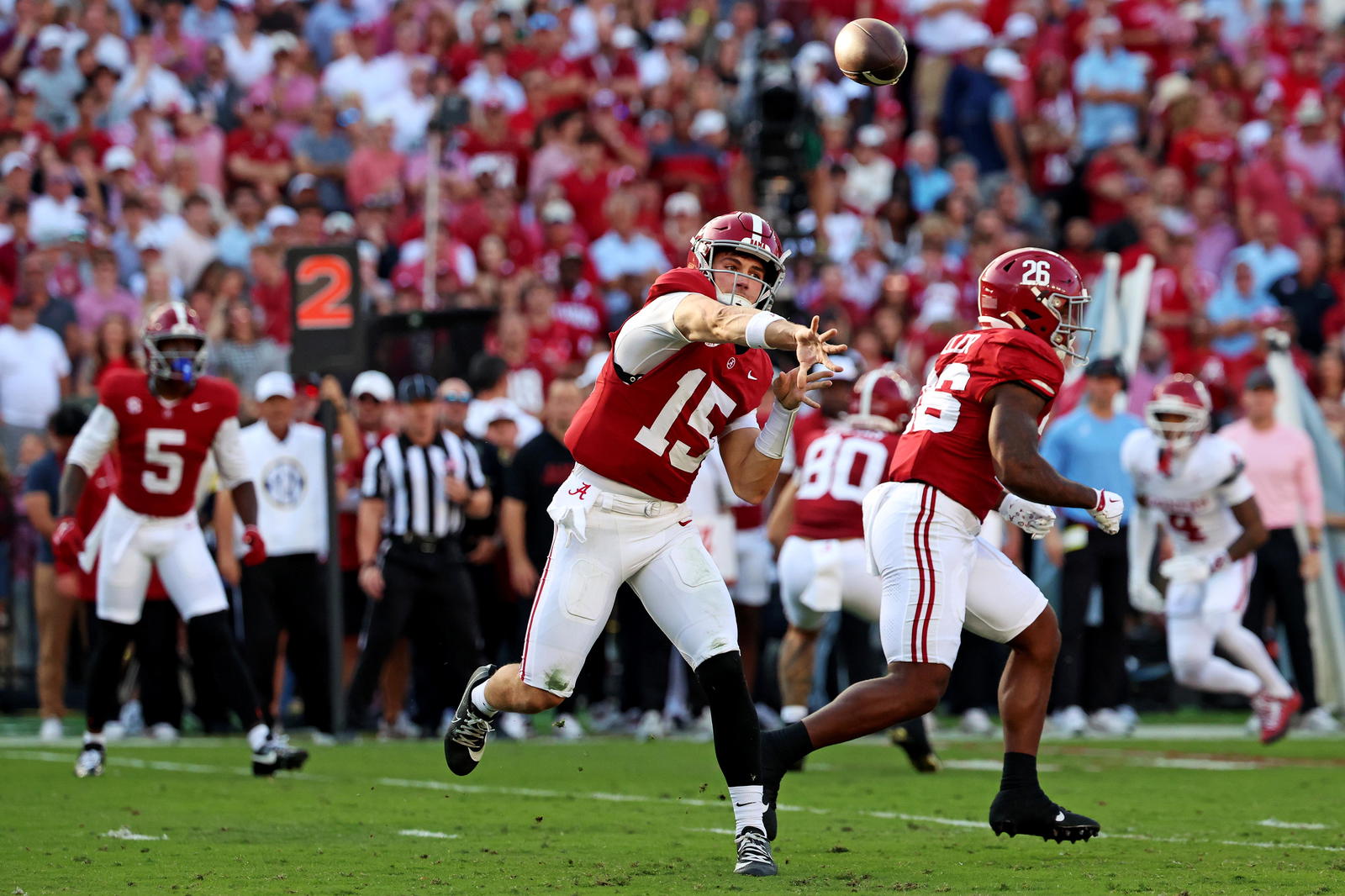
Alabama's superior resume is overlooked as the CFP committee seemingly dismisses strength of schedule, questioning the sport's competitive standards.
The College Football Playoff committee sent a message Tuesday night. And whether they meant to or not, it’s loud enough to shake the entire sport: Strength of Schedule might not matter anymore.
Because if it does, the rankings certainly didn’t show it.
Let’s start with the obvious comparison everyone is talking about: Alabama and Notre Dame.
Two teams.
Two resumes.
Two losses each.
And yet somehow, they’re treated as if their seasons look remotely the same.
But they don’t. Not even close.
Alabama’s losses? Week 1 to an unranked Florida State team that played the game of its life, and last weekend to No. 8 Oklahoma, a legitimate playoff contender. Not pretty, but competitive and understandable.
Notre Dame’s? A loss to No. 3 Texas A&M and another to No. 13 Miami. Solid opponents, sure. But the real difference comes when you flip the page and look at who these teams have beaten.
Alabama owns four ranked wins, and not just ranked wins, but high-quality ones.
At No. 4 Gerogia.
At No. 22 Missouri.
Home vs. No. 14 Vanderbilt.
Home vs. No. 20 Tennessee.
All four are legitimate victories the committee traditionally values. Road wins. Ranked wins. Statement wins.
Notre Dame? They have one.
Home vs. No. 15 USC
And that’s it.
That’s the résumé.
So why are the two programs being graded as if the strength of their seasons is equal? Why does it feel like the committee simply shrugged at Alabama’s top-25 matchups while rewarding a team that has barely been tested?
If the committee is signaling that strength of schedule no longer matters, then college football needs to rethink everything.
Why should teams schedule tough out-of-conference games?
Why risk anything when coasting through a soft lineup appears just as effective, if not more?
The sport has always been built on proving it on the field, against the best. But if Tuesday’s rankings are the new standard, then the message to athletic directors is clear:
Don’t challenge yourself. Don’t schedule big. Don’t risk a loss. Just survive.
If the committee no longer values strength of schedule, then the blueprint for winning just became weaker, and so did college football.

